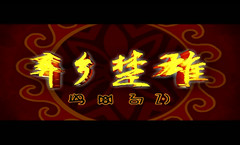Dictionaries define what cultures create
By Deng Zhangyu ( China Daily )
Updated: 2014-06-08
A growing amount of money and manpower is being invested in compiling dictionaries to protect China's ethnic languages - but the need for, and quality of, the work is sometimes questioned.
Tujia-Han dictionary writer Tian Desheng acknowledges most Tujia people only write in Chinese, even when they typically speak Tujia.
Many villages have Chinese names used in addition to the original Tujia.
Long Shengguang, who published his Miao-Han dictionary last year, says he and his teacher are the only two people who can proficiently write in Miao in his hometown in Yunnan province's Luquan Yi and Miao prefecture.
Most Miao write in Chinese characters but converse in their mother tongue.
Miao's official written form was developed in 1904, using the International Phonetic Alphabet. The ethnic group has a population of more than 9 million in different provinces, including Yunnan and Hunan.
There are two Miao-Han dictionaries, although few people write in Miao.
Long produced one. The other is by Hunan native Wang Weiyang.
Long says he has never heard of Wang's edition.

Sun Hongkai, a linguist who has helped compile dictionaries of more than 20 Chinese ethnic languages, says: "Many people do the same things and repeat the work done by others. It's a waste of money and time."
The 80-year-old has studied ethnic languages since 1954, when he graduated from Peking University.
His knowledge covers nearly all of China's ethnic languages.
"I've visited many ethnic groups in the past two years," Sun says.
"They're all compiling dictionaries."
He explains compiling an ethnic-language dictionary requires more than simply collecting words and phrases. It requires an academic to dig out messages within the language, such as those pertaining to ethnic groups' traditional medicine.
Sun recalls traveling to Sichuan province in 2006 to investigate Ersu, a newly discovered ethnic language spoken by fewer than 10,000 people in a Tibetan area of Sichuan province.
He spent several days with a priest, who told him the names of many medicinal herbs that exist only in the area.
In 1.5 hours, Sun had chronicled more than 170 herbs used to treat everything from colds to wounds.
"These rare medicinal plants may have never been found if the language hadn't been discovered by non-native speakers and I hadn't recorded these words," he says.
dengzhangyu@chinadaily.com.cn
(China Daily 06/08/2014 page3)

